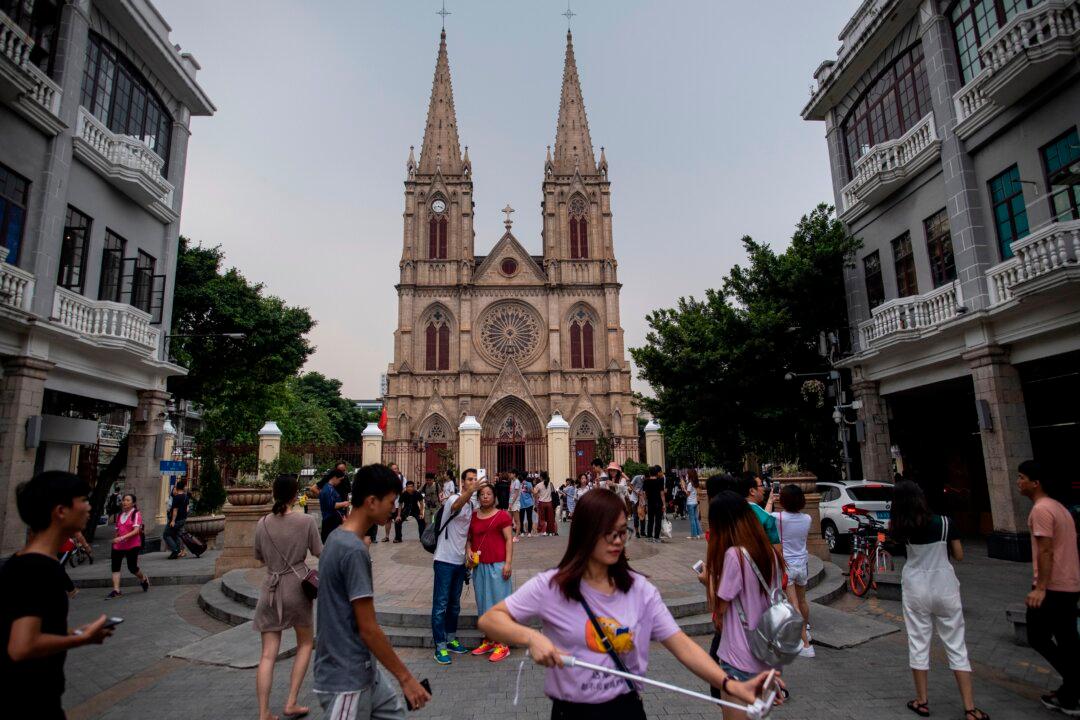BEIJING —A bishop who has resisted demands to join China’s Communist Party-controlled church body has been taken into custody, a Catholic news service reported, despite recent moves by Beijing and the Holy See toward reconciliation.
Asia News reported that Peter Shao Zhumin dropped out of sight several days ago, but gave no details other than saying he had been subjected to “dozens of days of indoctrination as in the times of the Cultural Revolution,” a reference to Mao Zedong’s radical 1966-76 attack on traditional Chinese culture, religion and the intelligentsia.
Shao was appointed by the pope in 2016 and was posted to the southeastern city of Wenzhou, which has a large Christian community. On Nov. 16, officials reached by phone at the local religious affairs bureau, its department regulating the Catholic church and police headquarters, said they had no knowledge of Shao’s situation and refused to give their names.
Asked about the matter, China’s foreign ministry spokeswoman Hua Chunying offered no information on Shao’s disappearance.
Shao’s disappearance follows a breakthrough agreement to give China some say over the appointment of bishops that critics called a cave-in to the ruling Communist Party just as it is waging a sweeping crackdown on religion.
The Vatican has long hoped to bring together China’s 12 million Catholics who are divided between those worshipping in state-sanctioned churches and the underground priests and parishioners loyal to the pope, who are frequently detained and harassed.
Details of the September agreement haven’t been released, although analysts say the Vatican will retain the power to put forward candidates while Beijing will likely have the right to refuse, said Anthony Lam, an expert on the Chinese church at the Holy Spirit Study Center in Hong Kong.
“I myself believe that in the process, the Holy See will agree to give the right of veto to the Beijing government,” Lam said, adding that the Vatican had little choice but to accept China’s terms.
The agreement calls for the Vatican to recognize seven bishops who had been appointed by Beijing without papal consent while also arranging for two legitimate bishops who remain loyal to Rome to step aside.
Such moves are seen as a concession on the Vatican’s part in the face of Beijing’s assertion that it would not allow “foreign forces” to govern the country’s faith groups.
Chinese authorities have in recent months cracked down heavily on Protestants, Catholics, Muslims and Buddhists in the name of national security and the “Sinosization” of religion.
Authorities have removed or demolished crosses from even officially sanctioned churches, shuttered churches, and at least in one township, replaced posters of Jesus Christ with portraits of Xi.
China broke off relations with the Holy See in 1951, after the officially atheist Communist Party took power and established its own church. All religions were harshly persecuted during the rule of ex-leader Mao Zedong, but underwent a revival following his death in 1976 and have continued to grow in recent years despite the party’s efforts to rein them in.





